Table of Contents
Introduction to Green Cardamom Seeds
Green cardamom seeds are a versatile spice with a sweet, floral, and slightly citrusy flavor used in cuisines worldwide. This guide provides actionable tips for using, storing, and buying green cardamom seeds to maximize flavor in your recipes. Whether you're making chai, baking desserts, or exploring culinary applications, these expert insights will help you harness the full potential of this "queen of spices."
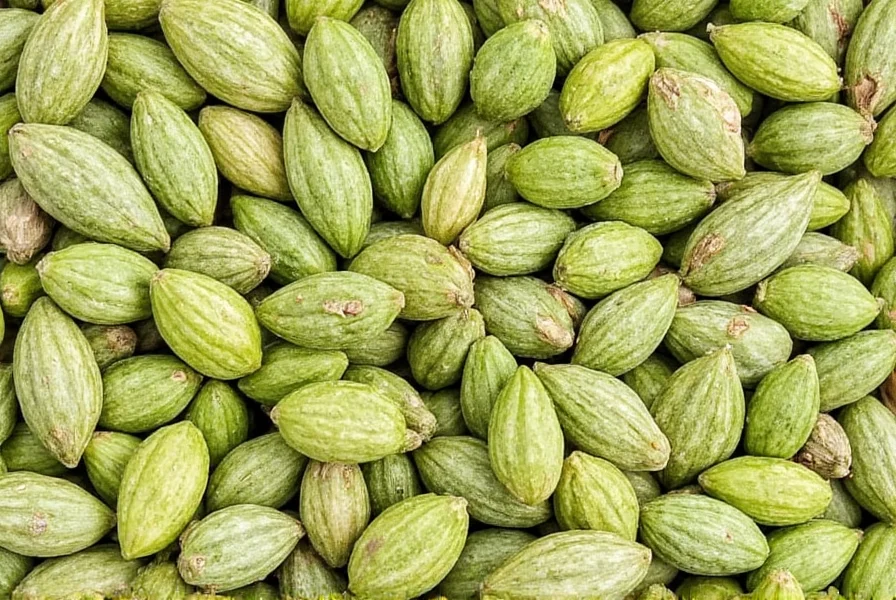
How to Use Green Cardamom Seeds
Green cardamom seeds deliver intense flavor with minimal quantity. Here are precise techniques for optimal use:
- Crush or grind them: Gently crush seeds in a mortar and pestle using a twisting motion to release essential oils without turning them to powder. For baking, use a spice grinder for fine consistency.
- Whole vs. ground: Use whole pods in teas or slow-cooked dishes; grind seeds for baking or sauces. Whole pods retain freshness longer than pre-ground.
- Add early in cooking: Introduce cardamom at the start of cooking to allow full flavor infusion—especially important in curries or stews where heat unlocks its complexity.
- Pair with complementary spices: Combine with cinnamon, cloves, or ginger for depth. In sweet dishes, pair with vanilla; in savory, use with cumin or coriander.
- Store properly: Keep in an airtight container away from light and heat. Whole pods maintain peak freshness for up to 12 months; ground cardamom loses potency after 3 months.
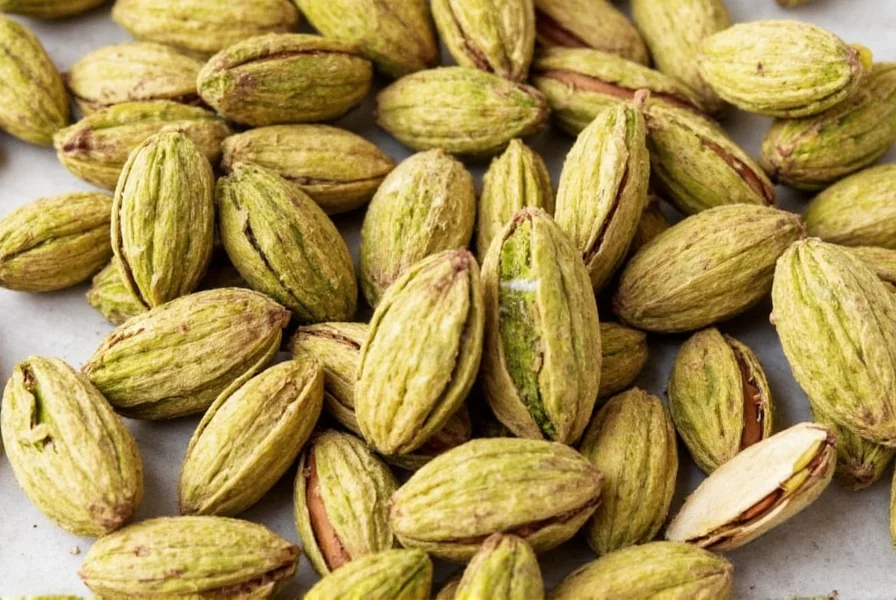
Cooking with Green Cardamom Seeds
Green cardamom elevates both sweet and savory dishes. Here are specific applications:
1. In Baking
Add 1/4 teaspoon ground cardamom per cup of flour to cakes, cookies, or breads. For banana bread, mix with cinnamon for a warm, aromatic twist. In Scandinavian pastries, use crushed pods for authentic flavor.
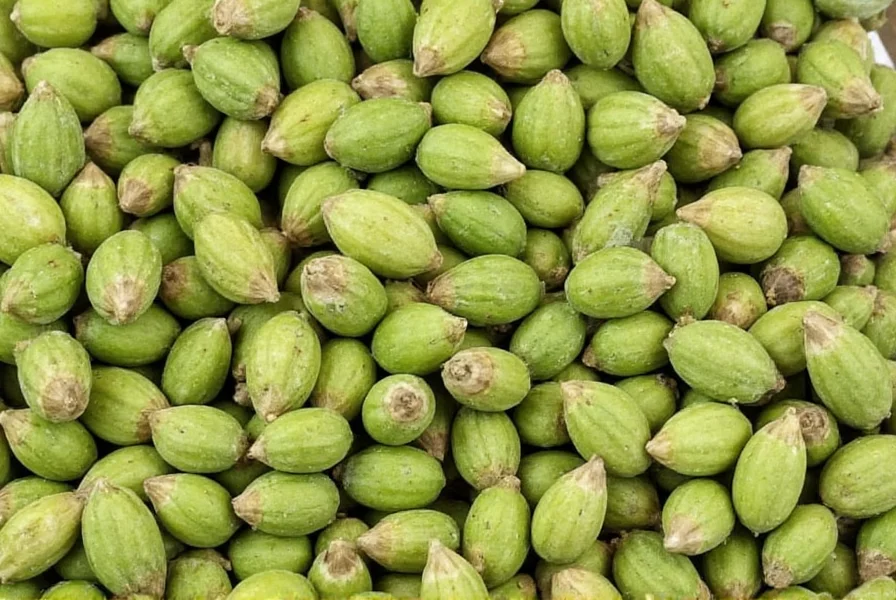
2. In Beverages
For authentic Indian chai: Simmer 3-4 crushed cardamom pods with black tea, milk, and sugar for 5 minutes. For coffee, add 1 crushed pod to grounds before brewing for a floral note. Cold brews benefit from 1/2 teaspoon ground cardamom per quart.
3. In Savory Dishes
In Indian biryanis, add 2-3 whole pods to rice during cooking. For stews or curries, crush seeds and sauté with onions for foundational flavor. Use sparingly in soups—1/8 teaspoon per serving—to avoid overpowering.
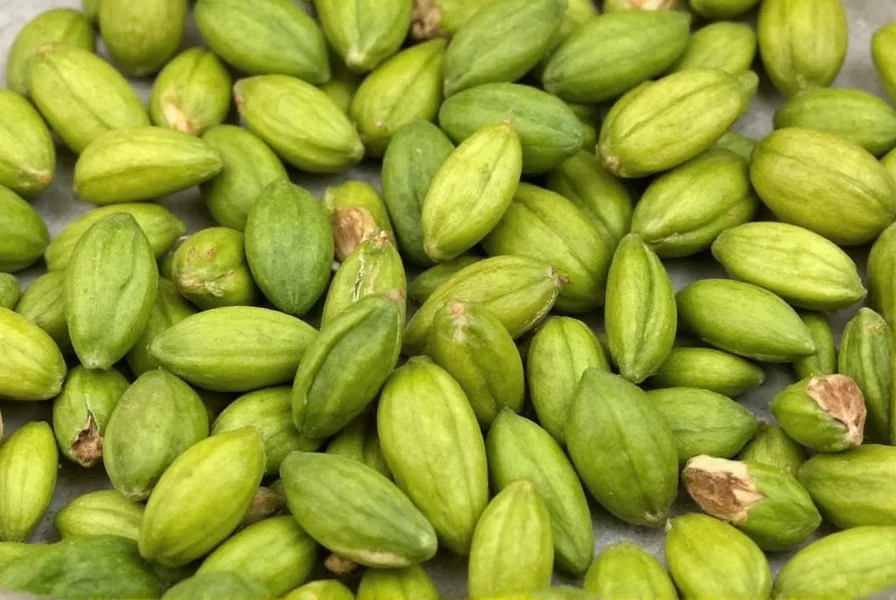
4. In Desserts
For Middle Eastern sweets like baklava, mix ground cardamom with nuts and honey. In custards or ice cream, add 1/4 teaspoon per quart for a delicate floral finish. In rice pudding (kheer), crush 5 pods and simmer with milk for traditional flavor.
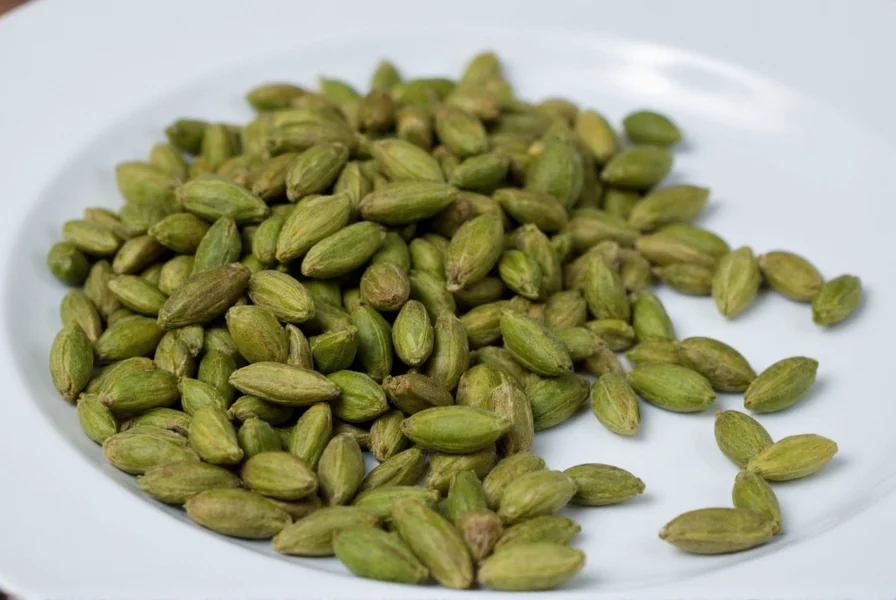
Buying Guide: How to Choose the Best Green Cardamom Seeds
Quality varies significantly. Follow these criteria for premium seeds:
| Feature | Description |
|---|---|
| Color | Bright green pods indicate freshness; brown or yellow signifies age or improper storage. |
| Aroma | Strong, sweet, and spicy scent when crushed. Stale pods smell musty or weak. |
| Texture | Dry, firm pods that don't clump. Moisture causes mold and flavor loss. |
| Packaging | Look for vacuum-sealed or opaque airtight containers to block light and air exposure. |
Recommended Products
Top options for different needs:
- Organic Green Cardamom Seeds (100g)
- Features: Certified organic, small-batch roasted for optimal aroma.
- Use Cases: Ideal for home baking, teas, and delicate desserts.
- Target Audience: Home cooks and health-conscious consumers.
- Suitable Occasions: Daily use, gifts, or special baking projects.
- Indian Grown Green Cardamom (500g)
- Features: Directly sourced from Kerala farms, high oil content for intense flavor.
- Use Cases: Professional cooking, spice blends, and large-scale preparation.
- Target Audience: Chefs and serious food enthusiasts.
- Suitable Occasions: Restaurants, catering, and commercial kitchens.
- Cardamom Pod Mix (250g)
- Features: Contains whole pods and pre-crushed seeds for versatility.
- Use Cases: Quick tea brewing, curry bases, and spice rubs.
- Target Audience: Busy home cooks and tea lovers.
- Suitable Occasions: Weeknight meals, afternoon tea, and casual gatherings.
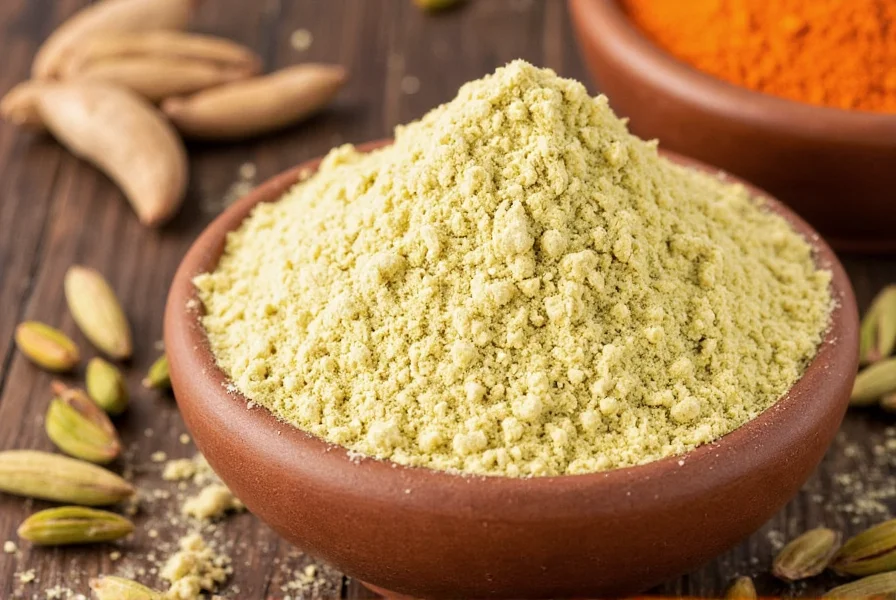
Frequently Asked Questions About Green Cardamom Seeds
What are green cardamom seeds?
Green cardamom seeds come from the Elettaria cardamomum plant, native to India's Western Ghats. Known as the "queen of spices," they have a sweet, floral, and citrusy flavor profile. Found inside green pods, they're used globally in both sweet and savory dishes for their aromatic complexity.
How should I store green cardamom seeds?
Store in an airtight container away from heat and light. Whole pods maintain freshness for up to 12 months; ground cardamom lasts 3 months. For extended storage, freeze in a sealed bag. Always grind seeds just before use to preserve volatile oils.
What's the difference between green and black cardamom?
Green cardamom (Elettaria cardamomum) has a sweet, floral, citrusy flavor ideal for desserts and light dishes. Black cardamom (Amomum subulatum) has a smoky, camphor-like taste suited for robust meat stews. They are not interchangeable due to distinct flavor profiles and culinary applications.
How much cardamom should I use in recipes?
Start with 1/4 to 1/2 teaspoon ground cardamom per serving. For whole seeds, use 3-5 seeds per serving. Cardamom's flavor intensifies with cooking time—reduce quantity for slow-cooked dishes. Always taste and adjust gradually to avoid overpowering.
Can I substitute ground cardamom for whole seeds?
Yes, but with adjustments. 10 whole seeds equal approximately 1/4 teaspoon ground cardamom. Whole seeds offer fresher, more vibrant flavor; pre-ground loses potency faster. For best results, grind whole pods yourself. If substituting, use slightly less ground cardamom due to concentrated flavor.
What are the health benefits of green cardamom?
Traditionally used in Ayurvedic medicine, green cardamom may support digestion and respiratory health. It contains antioxidants and has been studied for potential anti-inflammatory effects. However, consult a healthcare professional before using for medical purposes, as research is ongoing and individual results vary.
How do I crush cardamom seeds properly?
Remove seeds from pods, then place in a mortar. Gently crush with a pestle using a twisting motion to release oils without pulverizing. For finer texture, use a spice grinder. Always crush just before use to preserve aroma, as volatile compounds dissipate quickly.
Conclusion
Green cardamom seeds transform ordinary dishes into extraordinary culinary experiences with their unique sweet and floral profile. From traditional chai to modern baking, mastering their use, storage, and selection unlocks authentic flavor in every recipe.
By following these expert guidelines—crushing seeds just before use, storing properly, and choosing high-quality pods—you'll consistently achieve restaurant-quality results at home. Embrace the "queen of spices" and let its aromatic complexity elevate your cooking journey.
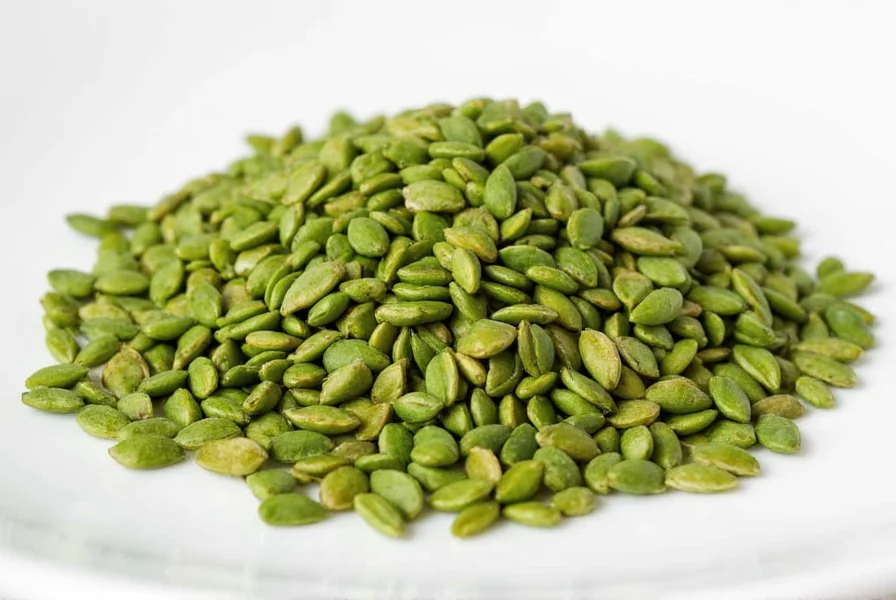

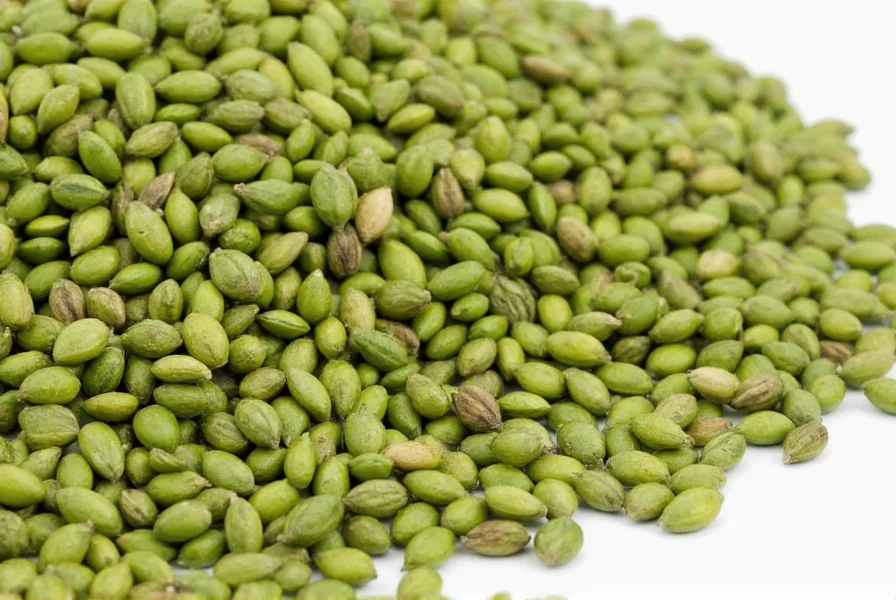









 浙公网安备
33010002000092号
浙公网安备
33010002000092号 浙B2-20120091-4
浙B2-20120091-4